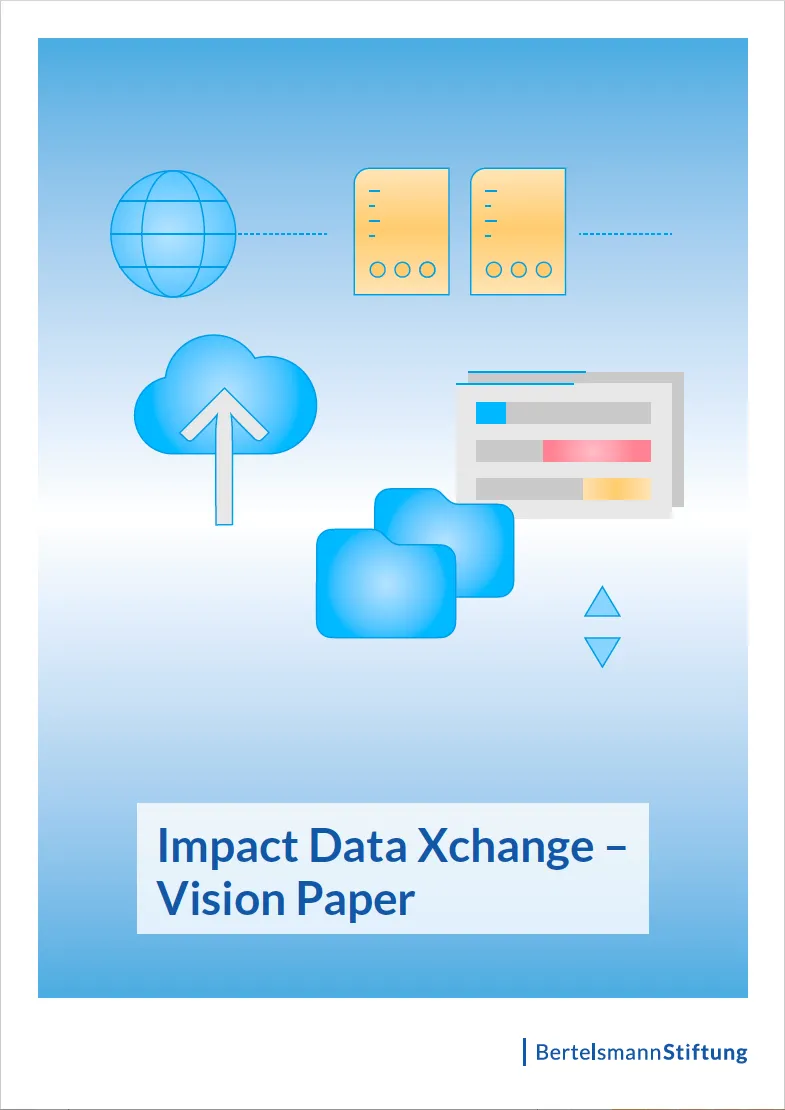Closing the SDG Financing Gap: A Policy and Impact Investing Initiative enabled by the Impact Data Xchange
Achieving the 2030 Sustainable Development Goals (SDGs) demands more
than vision—it demands coordination, capital, and clarity. Despite
significant momentum in the impact investing sector, a persistent
barrier remains: the lack of accessible, standardized, and trusted
impact data. Without it, policy implementation stalls, capital
deployment slows, and the credibility of ESG claims remains in
question.
Introducing the Impact Data Xchange (IDX) – a collaborative
initiative designed to enable seamless, sovereign, and scalable data
sharing across the global impact ecosystem. Backed by the Bertelsmann
Stiftung, the SINE Foundation, Artha Networks, and ImpactableX, IDX is
set to transform how investors and policymakers align capital with measurable
outcomes.
The Policy and Investment Challenge: A Fragmented Data Landscape
Policymakers and impact investors face similar challenges:
fragmented data systems, a lack of interoperability and high due
diligence costs. For policymakers, this makes regulatory enforcement
and policy evaluation difficult. For investors, it hampers deal
flow, increases transaction costs, and undermines confidence in
reported outcomes.
Despite strong demand for sustainable investment opportunities - especially
in emerging markets - there is no common infrastructure for data exchange.
Enterprises are burdened with redundant reporting, while investors lack
timely, reliable information to make informed decisions. This fragmentation
is more than inefficient; it’s a systemic risk.
The IDX Solution: Infrastructure for Scalable Impact
The Impact Data Xchange (IDX) is not another platform.
It is a
digital public good—a connective layer that unites
the existing ecosystem of investors, enterprises, and platforms
around shared protocols and governance principles. IDX is grounded
in four core design principles:
IDX is grounded in four core design principles:
- Openness: Ensuring low barriers to entry, with open-source tools and inclusive governance.
- Reciprocity: Guaranteeing mutual benefits for all participants—no party extracts value at others’ expense.
- Sovereignty: Protecting data ownership and privacy through peer-to-peer sharing and explicit consent.
- Agility: Allowing the system to evolve alongside emerging policy requirements, regulatory standards, and investor needs.
This approach enables IDX to act as a neutral enabler of trusted data collaboration, not a commercial competitor.
Strategic Benefits for Policymakers
-
IDX enables access to real-time, high-quality impact data that helps track SDG progress, enforce compliance, and evaluate the effectiveness of public-private interventions.
-
As regulations such as the EU’s CSRD or the EUDR come into force, IDX offers a framework for verifying and aggregating sustainability data in line with evolving policy demands.
-
IDX lowers due diligence costs and facilitates cross-sector collaboration, making it easier to mobilize private capital into public-priority sectors such as climate resilience, health, and inclusive finance.
Strategic Benefits for Impact Investors
-
With standardized and verifiable pre- and post-investment data, investors can identify investable opportunities more efficiently and reduce risk in emerging markets.
-
IDX eliminates repetitive due diligence processes, enabling faster deal flow and portfolio diversification with reduced overhead.
-
Participation in IDX supports compliance with new disclosure rules and increases competitiveness in securing institutional or blended capital.
Strategic Benefits for Social Enterprises
-
Clear, verifiable impact data makes it easier for social enterprises to attract funding from impact investors, development finance institutions, and blended finance vehicles.
-
IDX minimizes redundant reporting by standardizing impact data, allowing enterprises to meet multiple investor requirements through a single, streamlined process.
-
With structured, machine-readable data, enterprises are better positioned to leverage AI-driven tools for reporting, benchmarking, and strategic planning in the future.
A Blueprint for Collective Action
IDX is already moving from concept to implementation. Four key actions are underway:
- Launch of the IDX Data Exchange Protocol, enabling standardized peer-to-peer data flows.
- Formation of a Lighthouse Stakeholder Group, focused on real-world pilots that demonstrate how interoperable data reduces risk and unlocks capital.
- Execution of the First Live Pilot, exchanging real-time data between funders and enterprises to validate impact and financial performance.
- Scaling the Network, informed by feedback from participants and aligned with community-driven governance.
This model is action-oriented, participatory, and scalable—everything needed to enable systemic impact investing at a global level.
A Call to Policymakers, Impact Investors and social enterprises
If you are designing sustainable finance frameworks, allocating
capital for development, or driving ESG alignment in portfolios, IDX
is a tool built for you. It’s not just about better data; it’s about
faster capital flows, and measurable progress toward the SDGs.
Policymakers can participate by integrating IDX standards into sustainability
and procurement regulations, while impact investors can adopt IDX protocols
to improve portfolio performance and compliance readiness. Capital recipients,
such as social enterprises, also stand to benefit: by reducing compliance
burdens and standardizing reporting requirements, IDX lowers reporting
costs and improves access to mission-aligned capital.
Together, we can shift from fragmented effort to coordinated impact—and
close the SDG financing gap, not with more paperwork, but with infrastructure
built for purpose.
Join the IDX initiative and help shape the standards, pilot the protocol, and lead the transformation of impact investing - from fragmented ambition to integrated action.
 download Vision Paper
download Vision Paper